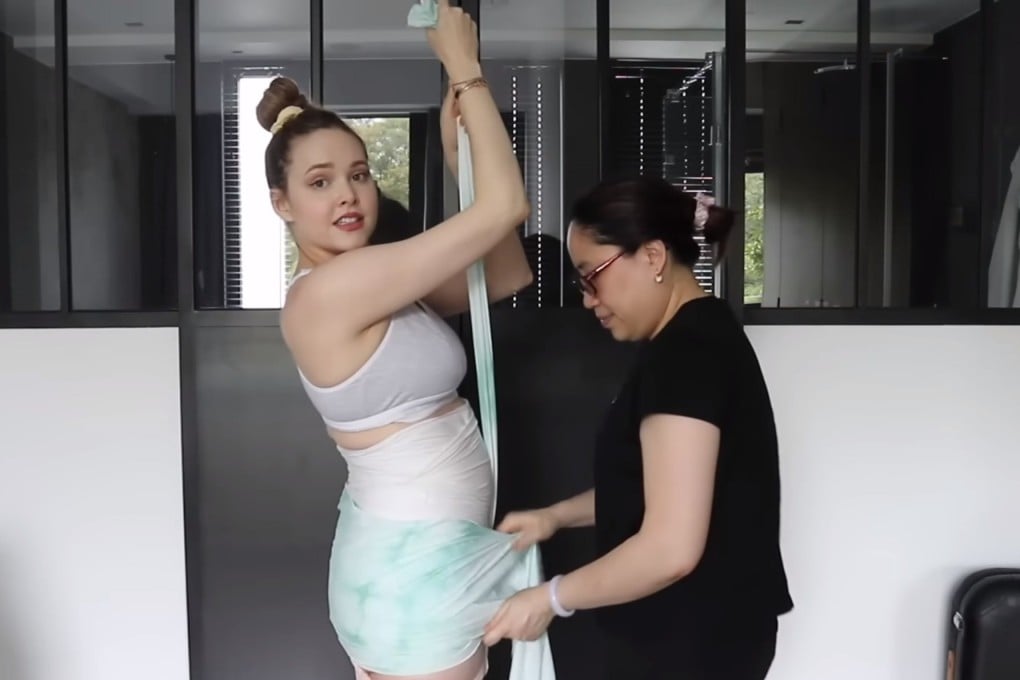Advertisement
Chinese post-partum confinement is an ancient practice that ‘filled my cup’, says YouTuber Taylor R, and helped her fully recover from birth
- When a Hong Kong-based Canadian YouTuber vlogged about undertaking a month of Chinese confinement after the birth of her son, her followers were fascinated
- She hired a confinement nanny who lived with her, made her bitter soups and told her what she could and could not do – it is a job that is in high demand
5-MIN READ5-MIN
1

“I feel like a true mummy. Like a mommy … but a mummy!” laughs Taylor Richard, as her stomach is bound in a tightly knotted binding.
The binding is called a bengkung, brought to Hong Kong from Malaysia, and is elaborately wound around a new mother’s abdomen to provide post-partum support.
Richard wore it for six to eight hours a day after her pregnancy. It is one of the many elements of traditional Chinese confinement that many modern-day mothers in Hong Kong still adhere to.
Advertisement
It is a practice that the 33-year-old Canadian YouTuber, Instagram influencer, model and now new mum had chosen to follow for a month after the birth of her son, Levi.

“My husband and I both don’t have any family in Hong Kong and it was my first baby,” explains Richard, who has more than 1.31 million subscribers to her Taylor R channel, and more than 584,000 followers under her Instagram handle taytay_xx. Her family is over 6,500 miles (10,500km) away in Canada – and Hong Kong’s Covid-19 restrictions have put a strain on international travel.
Advertisement
Instead, Carol Chan – Richard’s pui jyut, or confinement nanny – came to live with her during her first post-partum month to guide her.
Advertisement
Select Voice
Select Speed
1.00x